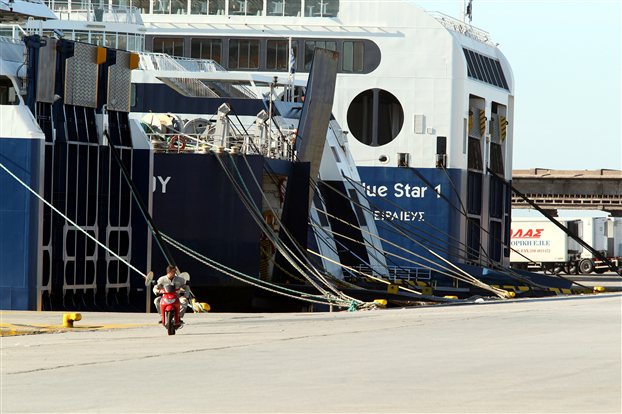Farmers from northern Greece are determined to block the Promachonas - Kulata border crossing point to attract the attention of the government in Athens. The protests of farmers with tractors on the road have been been underway for eight days already. They are demanding a zero excise duty on the fuel they use in agricultural production, a reduction of the tax burden and the maintaining of the 2012 government funding levels. Now, they are ready to block key roads to force the government to respond to their demands.
A complete blockade is threatening Greece after the strike of port workers in Piraeus has lasted for six days now. Farmers are ready to block the border with Bulgaria and the Egnatia highway. University and college teachers have started active protests against the "Athens" programme of reform in education and journalists from the public television and radio stations have announced a 24-hour strike against the fiscal consolidation measures.
On Wednesday 5 February, port workers will meet to decide whether to continue the strikes and  blockades. Despite the continuous negotiations, the conflict between the government and the port trade unions is deepening. The situation on the islands is worsening. Essential products are in short supply. Producers from the island part of Greece are unable to meet the delivery terms for their produce, which is rotting at the ports. They are urging the government to solve the problems in the commercial and civil fleet in order for them not to lose their contracts with customers abroad.
blockades. Despite the continuous negotiations, the conflict between the government and the port trade unions is deepening. The situation on the islands is worsening. Essential products are in short supply. Producers from the island part of Greece are unable to meet the delivery terms for their produce, which is rotting at the ports. They are urging the government to solve the problems in the commercial and civil fleet in order for them not to lose their contracts with customers abroad.
The demands of port workers, who are holding hostage shipping transport, include restoring the social security, which was applicable before the financial crisis, reducing the tax burden and even repealing the taxation of the income of employees in the shipping industry. They insist that the blockades of ports will continue until the government responds to their demands.
At the same time, the government is ready to announce their civil mobilization if the blockades of ports continue. Government sources state that the demands of the port workers are not feasible in the period of fiscal consolidation, which Greece has to implement as part of its recovery programme. The position of Prime Minister Antonis Samaras is that he cannot yield to the demands of a small group of workers after the wage cuts and higher taxes apply to all. The problem is that the protesters are many and will increase in number.
Students and teachers are also preparing to take a stand against the government reforms related to the reorganization of the education system. The "Athens" plan as the Ministry of Education calls it provides for the closure of 94 universities and colleges that do not meet the quality requirements of national education. Journalists from the public television and radio stations and from the municipal media will not work on Tuesday either as part of their protest against the government measures. They insist on restoring the collective labour agreement for employees in the public media, which has been replaced by the single payroll table for the payment of public sector workers.